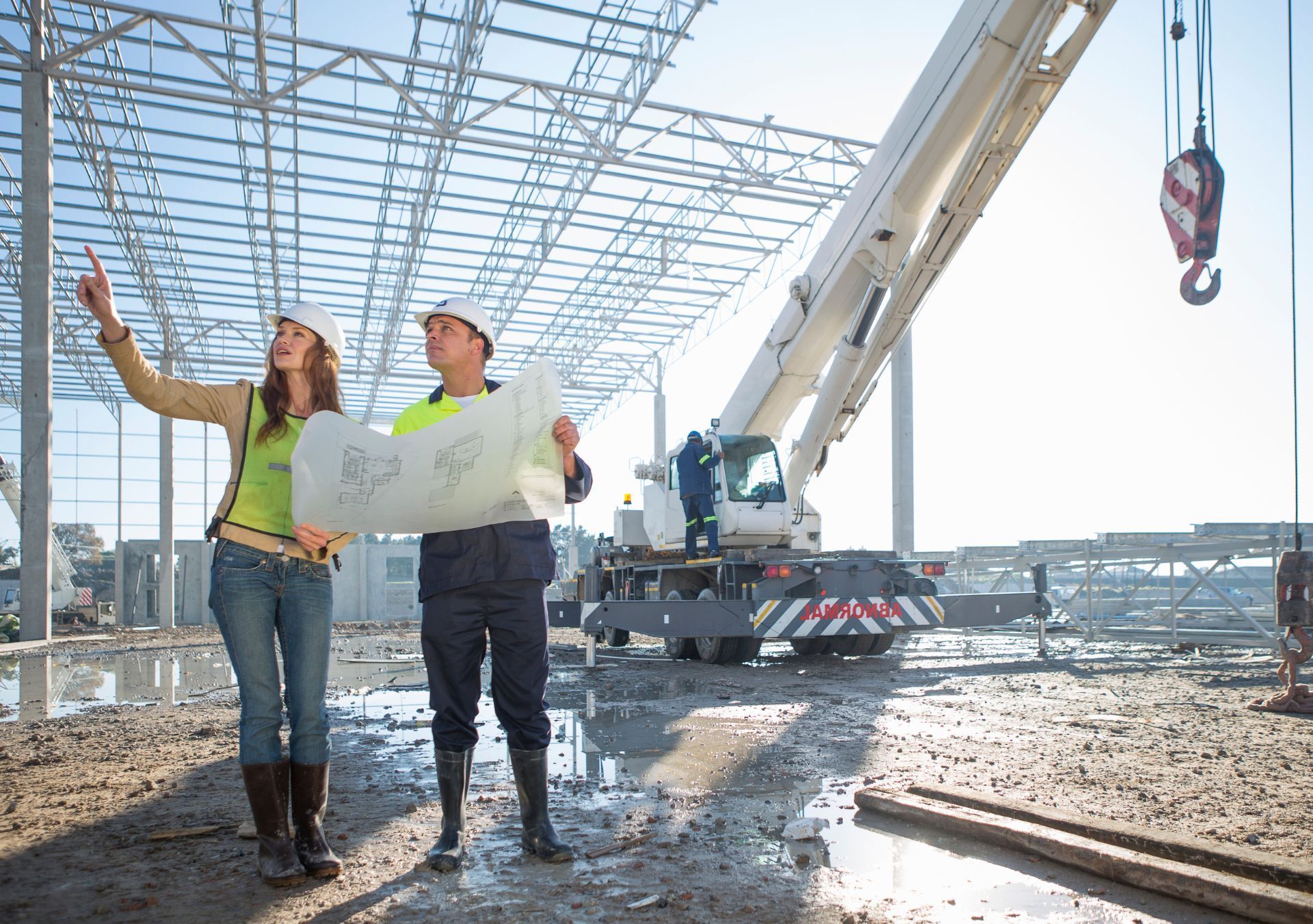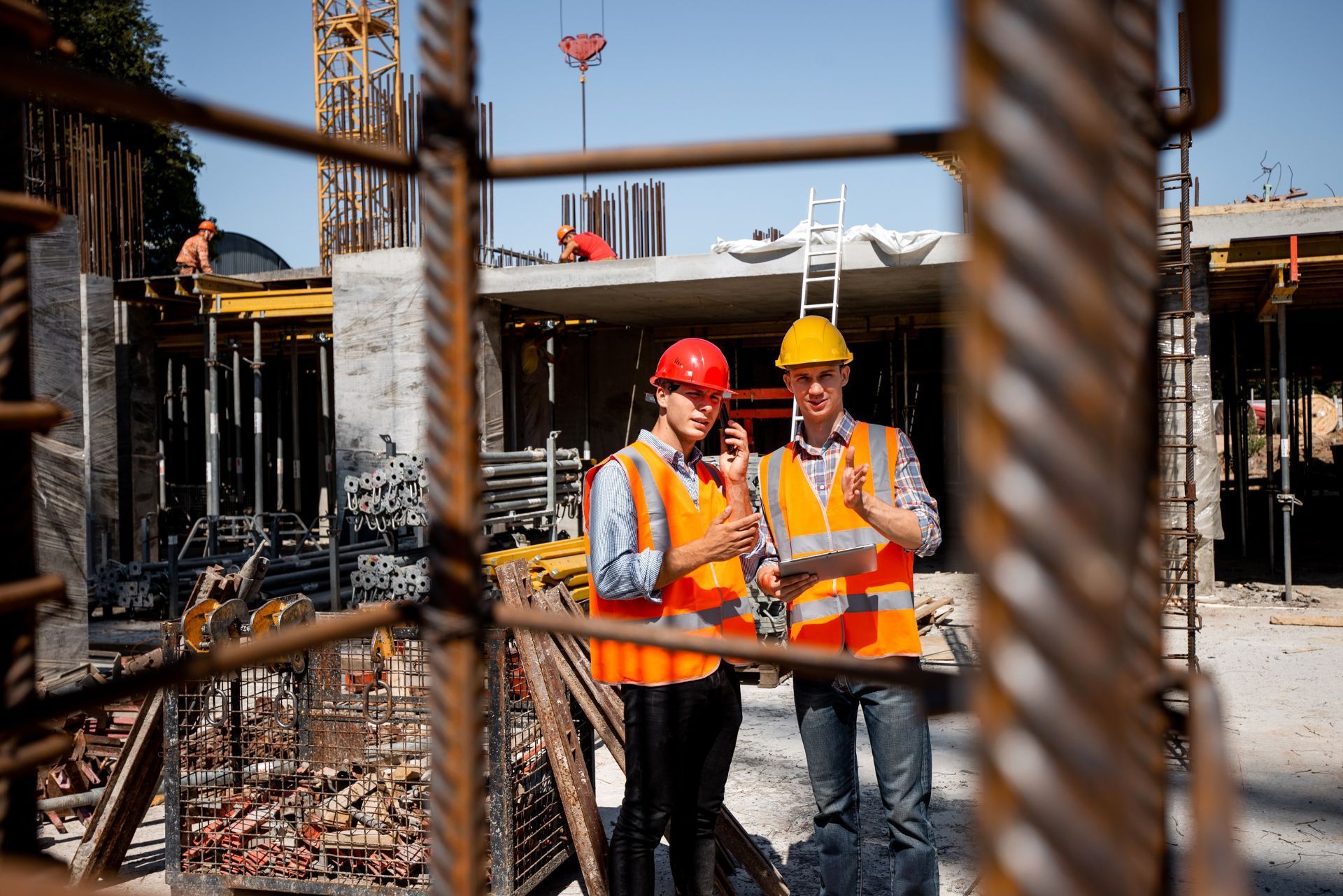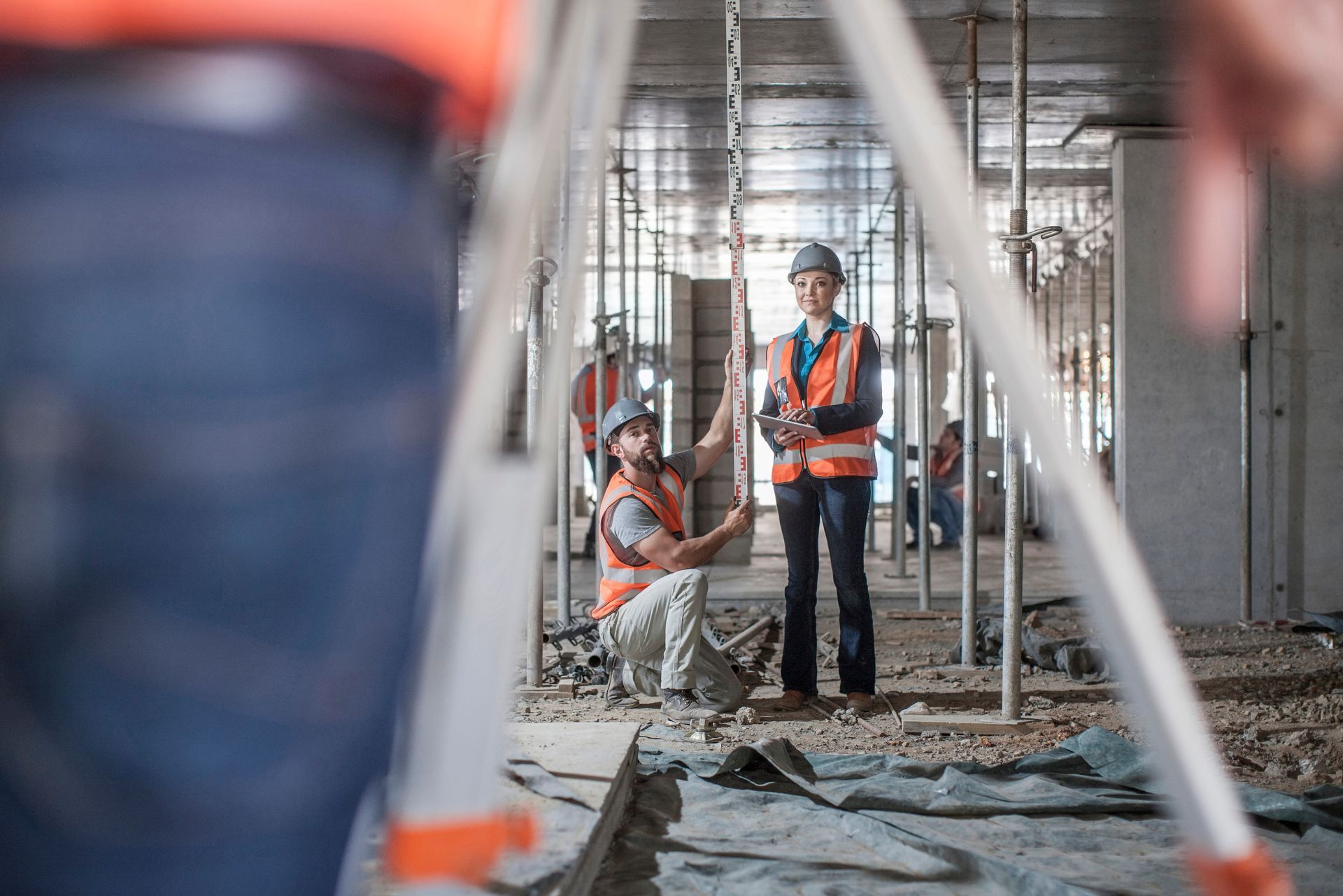
Most Common Business Policies
Index
Contact Us
In the dynamic world of construction, insurance is an essential component that protects businesses, workers, and clients alike. Arizona, with its unique climate and regulatory environment, presents specific challenges and opportunities for construction professionals. Understanding the nuances of construction insurance in Arizona can help mitigate risks and ensure the smooth operation of construction projects. This comprehensive guide covers everything you need to know about Arizona construction insurance.
Understanding Construction Insurance
Construction insurance encompasses a variety of policies designed to protect against risks associated with construction projects. These risks can range from property damage and bodily injury to equipment theft and contractual liabilities. Understanding the different types of insurance available is crucial for contractors and construction companies operating in Arizona. The construction industry is dynamic and often unpredictable, making it imperative for stakeholders to be well-informed about their insurance options to mitigate potential setbacks.
Types of Construction Insurance
There are several key types of construction insurance that contractors should consider:
- General Liability Insurance: This policy protects against claims of bodily injury or property damage that may occur during a construction project. It is essential for safeguarding against potential lawsuits. General liability insurance can cover legal fees, settlements, and medical expenses, ensuring that contractors are not financially crippled by unexpected claims.
- Workers' Compensation Insurance: Required by law in Arizona, this insurance provides benefits to employees who suffer work-related injuries or illnesses. It covers medical expenses and lost wages. This coverage is vital not only for compliance with state regulations but also for fostering a safe working environment, as it encourages employers to prioritize worker safety and health.
- Builder's Risk Insurance: This policy protects buildings under construction from damage due to fire, theft, or other risks. It is particularly important for large projects. Builder's risk insurance can also cover materials, fixtures, and equipment on-site, which is crucial for managing the financial implications of delays caused by unforeseen incidents.
Why Construction Insurance is Crucial
Construction projects are inherently risky, and unforeseen events can lead to significant financial losses. Without adequate insurance, contractors may find themselves liable for damages, which can jeopardize their business. Insurance not only protects against these risks but also provides peace of mind, allowing contractors to focus on their work without the constant worry of potential liabilities. Furthermore, having comprehensive insurance coverage can enhance a contractor's reputation, as clients are more likely to trust companies that demonstrate a commitment to risk management and safety.
In addition to the standard types of insurance, contractors might also consider specialized policies such as environmental liability insurance, which covers risks associated with pollution or hazardous materials, and professional liability insurance, which protects against claims of negligence in professional services. These additional layers of coverage can be particularly beneficial in Arizona, where the unique environmental conditions and regulatory landscape may pose specific challenges. By investing in a robust insurance portfolio, contractors not only safeguard their operations but also position themselves for long-term success in a competitive industry.

Arizona-Specific Considerations
Arizona's unique environment and regulatory landscape influence the types of construction insurance needed. Factors such as the state's climate, building codes, and local laws play a significant role in determining the insurance requirements for construction businesses. The state's diverse geography, ranging from deserts to mountainous regions, also affects construction practices and the associated risks that contractors must navigate. Understanding these nuances is essential for any construction firm looking to operate successfully in Arizona.
Climate and Environmental Risks
Arizona is known for its extreme heat and occasional monsoon storms. These environmental factors can pose risks to construction sites, including heat-related illnesses for workers and damage to materials. Contractors should consider policies that specifically address these risks, such as coverage for heat stress-related claims and protection against weather-related delays. Additionally, the arid climate can lead to dust storms, which may impact visibility and air quality on construction sites. Implementing safety protocols and ensuring that workers are equipped with appropriate protective gear can mitigate these hazards, but having the right insurance coverage is equally crucial to safeguard against potential liabilities.
Regulatory Requirements
Arizona has specific laws governing construction insurance, particularly regarding workers' compensation. All employers in the construction industry must carry workers' compensation insurance, regardless of the number of employees. Understanding these regulations is vital for compliance and ensuring that construction businesses operate legally. Furthermore, Arizona's construction industry is subject to various licensing and bonding requirements that can vary by municipality. Contractors must stay informed about local regulations, which can include additional insurance mandates or specific coverage limits, to avoid penalties and ensure smooth project execution. Familiarizing oneself with the Arizona Registrar of Contractors and local building departments can provide valuable insights into the evolving regulatory landscape.
Choosing the Right Insurance Provider
Selecting the right insurance provider is a critical step for construction businesses in Arizona. The right provider can offer tailored coverage that meets the specific needs of a construction project while also providing excellent customer service.
Evaluating Insurance Providers
When evaluating potential insurance providers, consider the following factors:
- Experience in the Construction Industry: Look for providers with a proven track record in construction insurance. They will better understand the unique risks and challenges faced by contractors.
- Coverage Options: Ensure that the provider offers a comprehensive range of coverage options tailored to the construction industry.
- Customer Service: Good customer service is essential for navigating claims and understanding policy details. Seek providers known for their responsiveness and support.
Getting Quotes and Comparing Policies
Obtaining multiple quotes from different insurance providers is crucial for finding the best coverage at the most competitive rates. When comparing policies, pay attention to coverage limits, deductibles, and exclusions. A lower premium may not always mean better value if it comes with significant limitations.
Additionally, it’s wise to inquire about any available discounts that may apply to your business. Some insurers offer reductions for safety training programs, risk management practices, or even for being a member of certain professional organizations. These discounts can significantly lower your overall costs while ensuring you have the necessary coverage in place. Moreover, consider the financial stability of the insurance provider; checking their ratings from agencies like A.M. Best or Standard & Poor's can provide insight into their ability to pay claims in the future.
Finally, don't underestimate the importance of personal recommendations and reviews. Speaking with other construction professionals in Arizona can yield valuable insights into their experiences with various insurance providers. Online reviews and testimonials can also help you gauge the reputation of a provider. A company that is well-regarded for its claims handling and customer service can make a significant difference when you need support the most, ensuring that your business remains protected and operational during challenging times.
Common Claims in Construction Insurance
Understanding common claims in construction insurance can help contractors prepare for potential risks and mitigate losses. Familiarity with these claims can also aid in selecting the right coverage.
Property Damage Claims
Property damage claims are among the most common in the construction industry. These claims can arise from accidents during construction, such as damage to a client's property or neighboring structures. Having adequate general liability and builder's risk insurance can help cover these costs. Additionally, it is vital for contractors to conduct thorough site assessments before commencing work, as this can help identify potential hazards that may lead to property damage. Regular communication with property owners and neighboring businesses can also foster a cooperative environment, reducing the likelihood of disputes arising from accidental damage.
Bodily Injury Claims
Bodily injury claims often occur when workers are injured on the job site. Workers' compensation insurance is essential for covering medical expenses and lost wages, but general liability insurance may also be necessary if third parties are injured. It is crucial to maintain a safe work environment to minimize these risks. Implementing comprehensive safety training programs and conducting regular safety audits can significantly reduce the incidence of workplace injuries. Furthermore, ensuring that all workers are equipped with appropriate personal protective equipment (PPE) is not only a legal requirement in many jurisdictions but also a critical step in safeguarding the health and well-being of the workforce.
Equipment Theft and Damage
Construction sites are prime targets for theft, with valuable equipment often left unattended. Equipment insurance can help protect against losses due to theft or damage. Contractors should also implement security measures to deter theft, such as fencing and surveillance cameras. In addition to physical security measures, maintaining an inventory of equipment and using tracking technology can enhance recovery efforts in the event of theft. Furthermore, establishing a clear protocol for reporting stolen equipment can expedite claims processes and minimize downtime, allowing contractors to maintain their project schedules and financial stability.

Cost of Construction Insurance in Arizona
The cost of construction insurance can vary significantly based on several factors, including the size of the project, the type of coverage, and the contractor's claims history. Understanding these factors can help contractors budget effectively for their insurance needs. In Arizona, where construction is booming due to population growth and infrastructure development, being informed about insurance costs is crucial for both new and established contractors.
Factors Influencing Insurance Costs
- Project Size and Scope: Larger projects typically require more coverage, leading to higher premiums. The complexity of the project can also influence costs. For instance, projects involving high-rise buildings or specialized construction techniques may necessitate additional coverage options, such as equipment breakdown or professional liability insurance.
- Claims History: Contractors with a history of claims may face higher premiums, as they are considered higher risk. Maintaining a good safety record can help keep costs down. Additionally, implementing risk management strategies, such as regular safety training for workers and thorough site inspections, can also positively impact insurance rates.
- Location: The location of the construction site can affect insurance rates. Areas with higher crime rates or severe weather may incur higher premiums. In Arizona, factors such as the prevalence of monsoon storms or the risk of wildfires in certain regions are critical considerations for insurers.
Budgeting for Insurance
When budgeting for construction insurance, it is essential to consider not only the premiums but also potential out-of-pocket costs, such as deductibles and co-pays. Contractors should allocate a portion of their budget for insurance to ensure they are adequately protected against risks. It's also wise to review and compare different insurance providers to find the best coverage options that fit within the budget. Engaging with an insurance broker who specializes in construction can provide valuable insights into the nuances of various policies and help contractors navigate the complexities of their insurance needs.
Moreover, as construction projects often span several months or even years, contractors should consider the long-term implications of their insurance choices. Regularly reviewing and updating their policies in response to changes in project scope or market conditions can ensure that they maintain adequate coverage throughout the duration of their work. Additionally, understanding the nuances of Arizona's construction laws and regulations can further aid contractors in making informed decisions about their insurance, ensuring compliance while also optimizing their coverage to protect against potential liabilities.
Tips for Reducing Insurance Costs
While construction insurance is a necessary expense, there are strategies contractors can employ to reduce costs without sacrificing coverage. Implementing risk management practices can lead to lower premiums and improved safety on job sites. Additionally, understanding the specifics of your insurance policy can help you identify areas where you might be over-insured or where you can adjust coverage to better fit your current needs.
Implementing Safety Programs
Establishing a robust safety program can significantly reduce the likelihood of accidents and claims. Training workers on safety protocols, conducting regular safety audits, and maintaining equipment can lower risks and, consequently, insurance costs. Furthermore, involving employees in safety discussions and encouraging them to report hazards can create a culture of safety that not only protects workers but also enhances the company's reputation. By fostering an environment where safety is prioritized, contractors can demonstrate to insurers their commitment to minimizing risks, which can further contribute to reduced premiums.
Bundling Policies
Many insurance providers offer discounts for bundling multiple policies. Contractors can save money by combining general liability, workers' compensation, and other necessary coverages with the same provider. This approach can also simplify management and claims processes. Beyond the financial benefits, bundling can also lead to more personalized service, as insurers often provide dedicated agents to clients with multiple policies. This can enhance communication and streamline the claims process, ensuring that contractors receive timely support when they need it most. Additionally, having all policies under one roof can make it easier to understand coverage limits and exclusions, helping contractors make more informed decisions about their insurance needs.
Final Thoughts on Arizona Construction Insurance
In the ever-evolving construction industry, understanding the intricacies of insurance is vital for success. Arizona's unique challenges necessitate tailored coverage that addresses local risks and regulatory requirements. By choosing the right insurance provider, understanding common claims, and implementing effective risk management strategies, contractors can protect their businesses and ensure the successful completion of their projects.
Investing time in understanding construction insurance will pay dividends in the long run, providing peace of mind and financial security in a competitive industry. As the construction landscape continues to evolve, staying informed about insurance options and regulations will be crucial for contractors operating in Arizona.
Moreover, Arizona's diverse geography—from arid deserts to mountainous regions—presents specific risks that contractors must navigate. For instance, the potential for extreme weather events, such as monsoons or dust storms, can impact project timelines and safety. Understanding these environmental factors can help contractors select appropriate coverage that includes provisions for weather-related disruptions, ensuring that their projects remain on track even when faced with unforeseen challenges. Additionally, local regulations may require certain types of coverage, such as workers' compensation or general liability, which can vary significantly from one municipality to another, making it essential for contractors to stay abreast of local laws.
Furthermore, the importance of building strong relationships with insurance agents and brokers cannot be overstated. These professionals can provide invaluable insights into the nuances of Arizona construction insurance, helping contractors navigate complex policies and claims processes. By fostering open communication and seeking advice on risk management practices, contractors can enhance their understanding of their insurance needs and make informed decisions that align with their business goals. This proactive approach not only helps in mitigating risks but also cultivates a culture of safety and responsibility within the workforce, ultimately leading to more successful project outcomes.
Resources for Further Information
For those looking to delve deeper into construction insurance in Arizona, several resources can provide valuable insights and guidance:
- Arizona Department of Insurance: The state’s official website offers information on insurance regulations and requirements.
- National Association of Home Builders (NAHB): This organization provides resources and information tailored to the construction industry.
- Insurance Information Institute (III): A comprehensive resource for understanding various types of insurance, including construction-specific policies.
By leveraging these resources, contractors can stay informed and make educated decisions regarding their insurance needs. Ultimately, a proactive approach to construction insurance will lead to a safer and more successful construction experience in Arizona.
